The
Chandos Portrait
Shakespeare I
En 213 (formerly En 355)
Dr. Richard Regan
DMH 103
Fall 2011
Course Objectives (IDEA Center)
Essential: Gaining a broader understanding and appreciation of intellectual/cultural activity (#7)
Important: Learning to analyze and critically evaluate ideas, arguments, and points of view (#11)
Important: Developing skill in expressing yourself in writing (#8)
This course studies the first half of the career of William Shakespeare, generally considered the greatest writer in the English language. We focus on early comedies, history plays, some mature comedies, and the interplay between early Sonnets and Romeo and Juliet. Shakespeare is a great wordsmith, and we concentrate on his language through a multimedia style of presentation. I'll project the text on one screen while we watch a production on another, next to the text. The books I have chosen (the Signet Classics) also give us a clear focus on the words of the play, and have helpful notes at the bottom of each page.
Each week I'll ask you to email me a short response paper where you evaluate 3 points made by a critic (or critics), essays found in the back of the individual Signet editions. And if you mark passages in your books as we do them in class, you'll have notes on all you need to study for the quote tests which form the major part of your grade. Another major project is an optional "contract" paper where you explore your own ideas about a play, its characters, or dramatic structure. Completion of this paper makes you eligible for a grade of A or A- in the course.
Shakespeare's work teaches us about our own human natures. As many psychologists, philosophers, theologians, historians, and scientists have observed, Shakespeare has acute powers of observation. We see in his plays how people behave, how they feel. how they act politically. And we understand ourselves and our own world better, even as we learn about the Renaissance, or Early Modern era.
Office
hours: Monday
3-4, Wednesday 1-1:30, Thursday 3-4.
Also before and after class, and by appointment.
Texts: Signet Classic editions of the plays listed below.
Grading: Three tests and an optional paper, each of equal weight in the final grade.
Modified contract: an 8-10 page optional paper to be eligible for a grade of A or A-. Papers may be rewritten after a conference. Topics must be in writing and approved in conference.
Required: 1) two tests based closely on the texts of the plays and a final exam; 2) weekly summaries/responses to critical articles or WWW sites. These are graded as quizzes and can raise or lower the final grade.
Attendance: for every three cuts, a point will be deducted from your semester average. Excused absences by written note from a Dean's office, Student Services/Health Center, or your faculty advisor. Excessive absences may result in a failing grade.
You should submit your papers electronically, written in Microsoft Word. Word has a feature called Track Changes which we can use to write comments on papers (in color). Click here to download a document that contains some suggestions for writing in Word and for emailing papers as attachments.
Final Exam: essays and passages for analysis.
Students with documented learning disabilities, please see me. Alternative methods of testing and evaluation are available.
Course description:
In the first half of Shakespeare's career, comedy, tragedy, and history plays express both the spirit of the Elizabethan age and their own identities as different genres which reference each other. A Midsummer Night’s Dream, Romeo and Juliet, Henry IV , and Much Ado About Nothing are among a selection of ten plays that explore dimensions of love, religion, and politics. We will learn how critics have approached Shakespeare in many different ways, and how to evaluate and respond to critical opinion. Multimedia presentations will show how performance and text combined enrich our understanding of this great writer.
Some fine Shakespeare productions can be viewed from this Library link:
http://ativ.alexanderstreet.com.libdb.fairfield.edu/Search/PersonID/219589/tab/video
Macbeth, with Anthony Sher
Measure for Measure, 2006 film
As You Like It, Globe Theater
Hamlet, with Kevin Kline
The Taming of the Shrew, American Conservatory Theater
King Lear, with James Earl Jones
Much Ado About Nothing, New York Shakespeare Festival
Powerpoint Slide Shows from Hardy Cook and the Shaksper archives
Shakespeare's Life
Shakespeare's Theater
Shakespeare's Texts
The Elizabethan World Picture
"The Elizabethan Theatre": a lecture with slides
Designing Shakespeare (home)
Designing Shakespeare (digital resources)
Shakespeare in Performance Institute Acting Exercises
Interactive Shakespeare Project
Touchstone: Shakespeare in Performance
Terry Gray's Mr. William Shakespeare and the Internet
Was Shakespeare Shakespeare? The Authorship Controversy
The Shakespeare Discussion List Archive
Polydore Vergil's Anglica Historica (1555)
Podcasts
American
Shakespeare Center
The ASC offers a number of different podcasts, including This Week at the
Blackfriars, the Blackfriars Backstage Pass, the American Shakespeare Center
Chronicles, and Doctor Ralph Reveals All.
You can find links to all of these podcasts at the American Shakespeare Center's
Podcast Central; you can also subscribe to all ASC podcasts through the iTunes
Music Store Podcast Directory, or through any number of web-based podcasting
sites, including Podcast
Pickle.
American Shakespeare Podcast Central (Blackfriars Playhouse)
Mobile Phone Shakespeare
iTunes Store: Search <Shakespeare> for a free app for the iPhone with searchable text
Mobile Open Source Shakespeare
Here are the instructions for viewing the Class pages and video clips. You'll need a password from Dr. Regan: rjregan@mail.fairfield.edu
Streaming
video is a part of the course because I've written classes to be interactive
with excerpts from performances. You will need a broadband internet connection.
Cable or DSL will work. Satellite is probably OK too. Dialup is too slow for
video.
As you scroll down the course page, for each of the plays you will see a link
called "Click." That will take you to the Class, and when you click
on a video clip you will see a password box. The password will be given out
in class, a security measure because the TEACH Act passed by Congress in 2002
allows only enrolled students to have access to copyrighted materials for educational
purposes. Our method of streaming will open the clip on your computer in QuickTime,
though if you are a Windows user RealPlayer may open it instead. QuickTime comes
standard on Macs, and if you Windows users do not have it, you can download
it (bundled with iTunes) from:
http://www.apple.com/itunes/download.
These video clips are also available from iTunes University, together with audio podcasts of our classes and some documents for each play. The clips can be expanded to full screen. Documents can be viewed as .pdf files only in iTunes, but the audio and video files can be synched to your iPod. If you are on the class roster, you have access through:
Enter your NetID number as your user name. The password is your NetID password. This login will work as soon as the class begins.
If you are a Windows user, you can get iTunes free at:
http://www.apple.com/itunes/download/ (scroll to the Windows links)
Schedule
Week of: (Study of the play begins, and may carry over to the beginning of the next week.)
September 5 - Introduction,
Theory
of Comedy, The Taming of the Shrew
(Monday is Labor Day)
The Internet Shakespeare Editions
RhymeZone Shakespeare Search Engine
September 12 - The
Taming of the Shrew

CLICK to go to the Class on the play.
Read: the play and the Signet Introduction, and the articles by Mack, Greer, Bamber, Newman, and Slights
"Personations: The Taming of the Shrew..."
"'Caparisoned like the horse': Tongue and Tail in Shakespeare’s The Taming of the Shrew"
The Works of the Bard: including a SEARCH engine
Scanning
Shakespeare's Lines
(click on Teacher's Guide, then Scansion Guide)
Shakespeare: Subject to Change (Cable in the Classroom)

Read: the play and the Signet Introduction, and the articles by Rossiter, Ornstein, and Kahn
CLICK to go to the class on the play.
Richard III Society Online Library
Thomas More's "The History of King Richard III"
"The Misogyny of Richard III..."
Polydore Vergil's account (1555)

Read: the play and the Signet Introduction, and the articles by Frye and David
CLICK to go to the Class on the play.
The Making of Love's Labour's Lost
"...the Nature of Shakespearian Comedy"
Introduction to the second tetralogy: Richard II
Read: the play and the Signet Introduction, and the article by Altick
"Derek Jacobi's Richard II: Ambiguities Answered"
"Historicising Shakespeare's Richard II: Current Events, Dating, and the Sabotage of Essex"

Read: the articles by Traversi, Schoenbaum, and Holderness
PAPER TOPICS DUE
“'I Live With Bread Like You': Forms of Inclusion in Richard II"
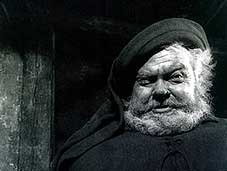
Read: the play and the Signet Introduction, and the articles by Ornstein and Goldman
"The Prudence and Kinship of Prince Hal..."
October 24 - excerpts from Henry IV, Part Two and Henry V (entire)
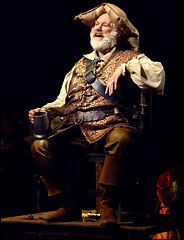
"The Prudence and Kinship of Prince Hal..."

Read: the play and the Signet Introduction, and the article by Collimore/Sinfield
CLICK to go to the Class on the play.
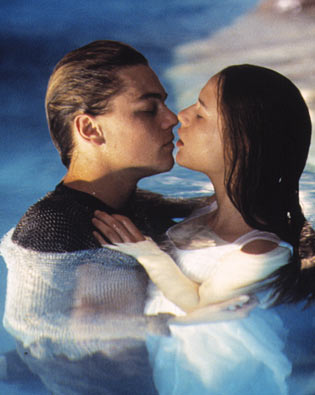
Read: the play and the Signet Introduction, and the articles by Goldman, Snyder, and Novy
CLICK to go to the Class on the play.
"Baz Luhrmann's Romeo and Juliet: Kitsch and Tears"
"Shakespeare and the Tragic Virtue"
Bibliography on Shakespeare's Women
PAPERS DUE
Supplemental - Early Sonnets
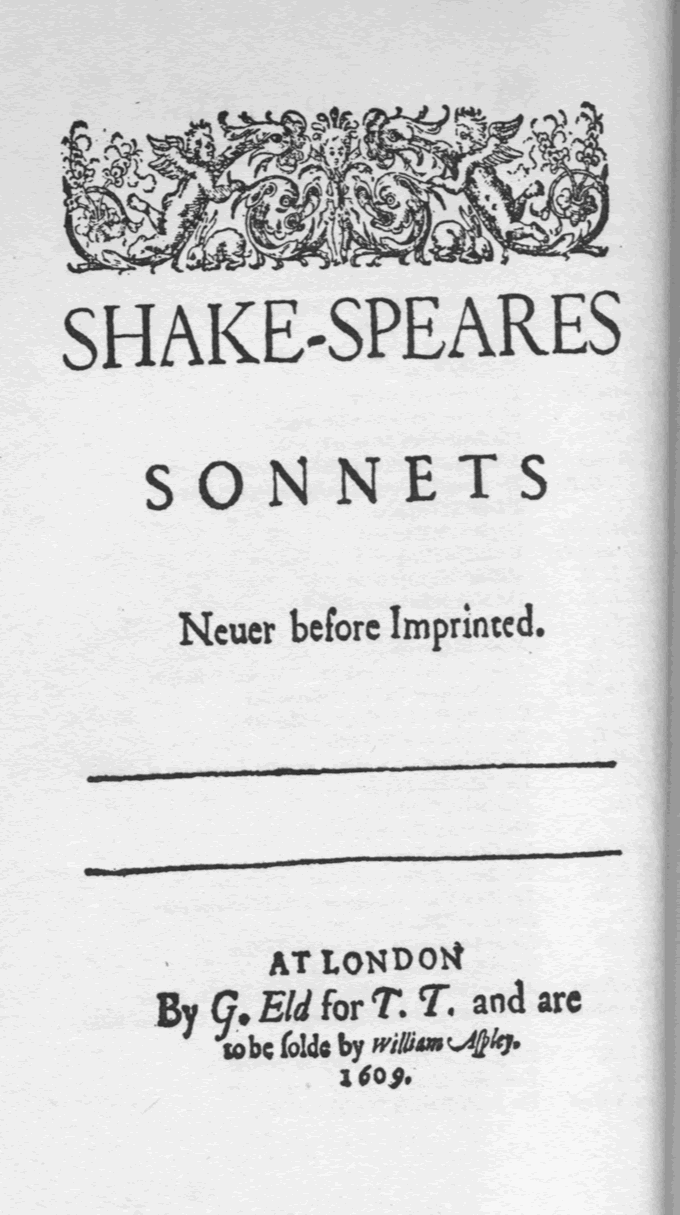
Read: the poems and the Signet Introduction, and the articles by Empson, Smith, and Nowottny
"The amazing web site of Shakespeare's Sonnets"
Shakespeare's Sonnets (1609): A Guide to Electronic Texts
Was Shakespeare Shakespeare? The Authorship Controversy
November
14 - A Midsummer
Night's Dream
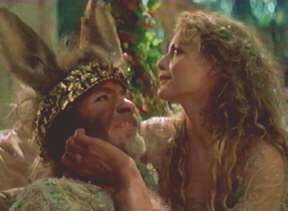
Read: the play and the Signet Introduction, and the articles by Myers, Bamber, and Slights
CLICK to go to the class on the play.
"...Petrarch and Pyramus in the Woods of Athens"
"From the Ridiculous to the Sublime"
A Study Guide to A Midsummer Night's Dream
A Midsummer Night's Web and MOO
A Hypertext Version of A Midsummer Night's Dream
November 21 - The
Merchant of Venice
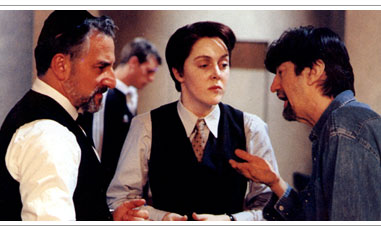
Read: the play and the Signet Introduction, and the articles by Bamber and Smallwood
CLICK to go to the Class on the play.
Shakespeare and Anti-Semitism: The Question of Shylock
"A Second Daniel: The Jew and the 'True Jew' in The Merchant of Venice"
"Law and Love in The Merchant of Venice"
"Contract in The Merchant of Venice" (Project Muse access)
Excerpt from Sir Thomas More, II, ii
Articles and reviews pertinent to the Radford/Pacino film
The Merchant of Venice -Interview with director and screenwriter Michael Radford
Shylock
on Appeal
"Shylock’s
isolation as character mirrors Shakespeare’s isolation as author"
"Sanitizing
Merchant: Pacino Plays Shylock Like a Grouchy Tevya"
THANKSGIVING HOLIDAY
November 28 - The Merchant of Venice
Articles and reviews pertinent to the Radford/Pacino film
The Merchant of Venice -Interview with director and screenwriter Michael Radford
Shylock
on Appeal
"Shylock’s
isolation as character mirrors Shakespeare’s isolation as author"
"Sanitizing
Merchant: Pacino Plays Shylock Like a Grouchy Tevya"
December 5 - Much Ado About Nothing
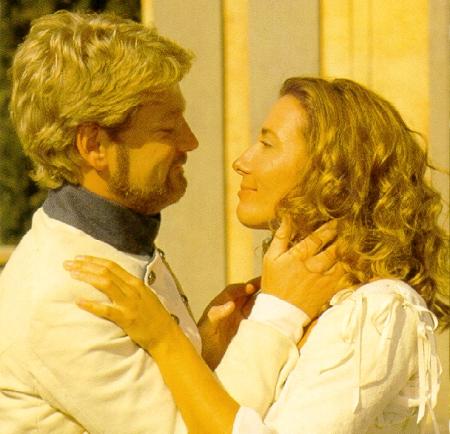
Read: the play and the Signet Introduction, and the articles by Stauffer and Neely
CLICK to go to the Class on the play.
"The Role of the Clown in Shakespeare's Theater"
December 12 - last class